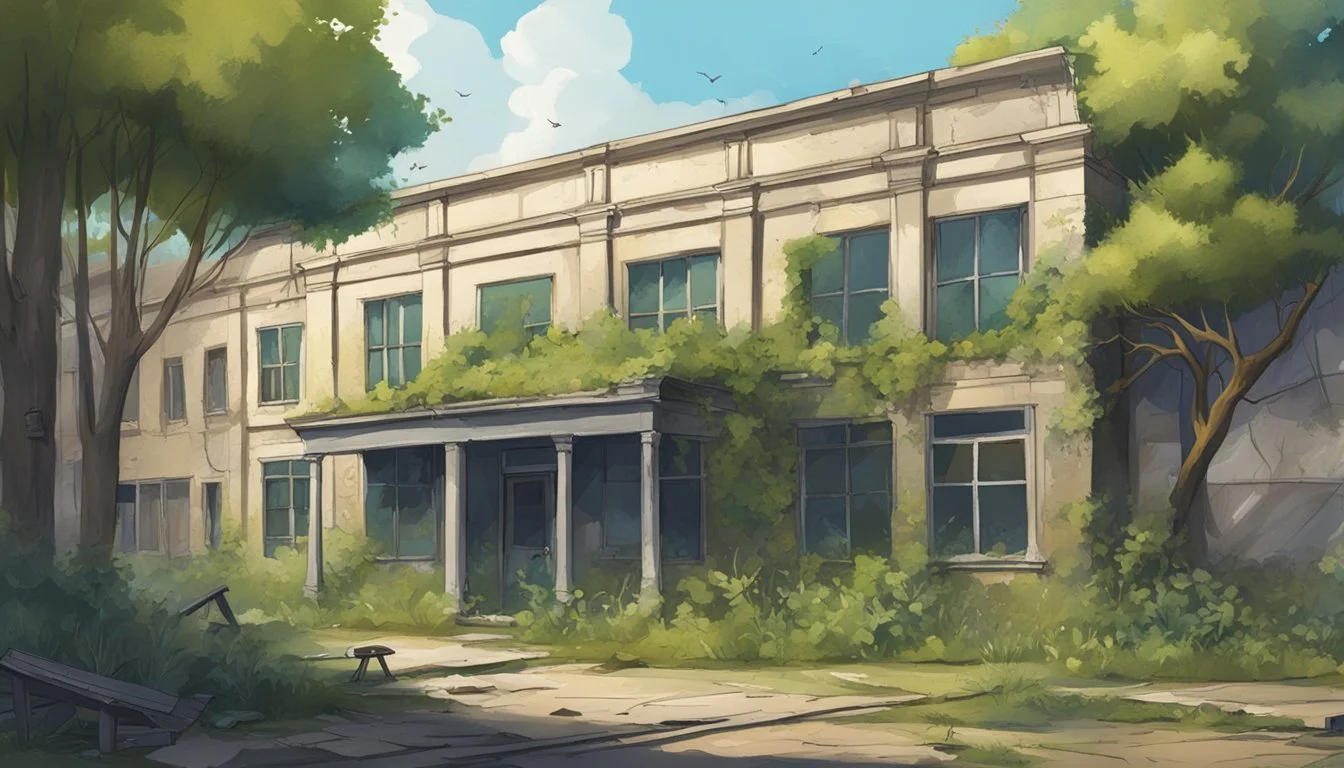Hard Knocks University: The Ultimate School for Life's Toughest Lessons!
The "School of Hard Knocks" is not a physical institution but rather a metaphorical concept referring to the harsh lessons learned through life experiences. This informal education comes from facing challenges, making mistakes, and overcoming obstacles rather than from traditional classroom learning. The phrase originated in the United States and has become a popular idiom to describe the wisdom gained from difficult real-world situations.
Many people proudly claim to be graduates of the "School of Hard Knocks," suggesting that their practical knowledge is just as valuable, if not more so, than formal academic degrees. This idea resonates with those who have achieved success through perseverance and resilience rather than through conventional educational paths. The concept emphasizes the importance of grit, adaptability, and problem-solving skills in navigating life's ups and downs.
While the "School of Hard Knocks" can teach invaluable lessons, it's important to recognize that formal education and life experience are not mutually exclusive. Both types of learning can contribute to personal growth and success. The key is to appreciate the unique insights gained from overcoming adversity while also acknowledging the benefits of structured learning environments.
Understanding Hard Knocks University
The concept of Hard Knocks University represents life experiences as a form of education. It emphasizes learning through challenges and setbacks rather than formal academic study.
Defining the Concept
Hard Knocks University, also known as the School of Hard Knocks or University of Life, refers to the education gained through real-world experiences. This informal learning process involves facing difficulties, making mistakes, and overcoming obstacles.
Unlike traditional institutions, Hard Knocks University has no campus or curriculum. Its "students" learn through trial and error in their daily lives.
The phrase highlights the value of practical wisdom acquired outside classroom settings. It suggests that life's challenges can be powerful teachers, shaping character and skills.
Origins and Usage
The term "School of Hard Knocks" first appeared in print in 1870 in the United States. It quickly gained popularity as a way to describe life's harsh lessons.
Over time, variations like "University of Hard Knocks" and "University of Life" emerged. These phrases are often used to contrast formal education with experiential learning.
People commonly use these terms to describe their background or qualifications. For example, someone might say they graduated from the "School of Hard Knocks" to indicate they learned through difficult experiences rather than formal study.
Comparison to Formal Higher Education
Hard Knocks University differs significantly from traditional higher education institutions. Formal universities offer structured programs, degrees, and academic credentials. In contrast, Hard Knocks University provides no official recognition or qualifications.
Traditional education focuses on theoretical knowledge and skills. Hard Knocks University emphasizes practical lessons learned through real-world challenges.
While formal education occurs in controlled environments, Hard Knocks University "classes" take place in unpredictable life situations. This can lead to more diverse and adaptable learning outcomes.
Both forms of education have value. Many successful individuals combine formal studies with lessons from the "School of Hard Knocks" to develop well-rounded expertise.
Curriculum Overview
Hard Knocks University offers a unique educational experience focused on real-world challenges and personal growth. The curriculum emphasizes practical skills and resilience through adversity.
Core Subjects of Life Lessons
The core curriculum at Hard Knocks University centers on essential life skills. Students engage in courses on financial management, problem-solving, and effective communication.
Time management and decision-making under pressure are key components. The university emphasizes critical thinking through real-world case studies and simulations.
Emotional intelligence and conflict resolution form another crucial pillar. Students learn to navigate complex interpersonal dynamics and professional relationships.
Adaptability and innovation modules prepare learners for an ever-changing world. The curriculum encourages creative solutions to unexpected challenges.
The Role of Adversity in Learning
Adversity serves as a primary teaching tool at Hard Knocks University. Students face carefully designed obstacles that push them out of their comfort zones.
Failure is reframed as a learning opportunity. The curriculum incorporates reflection exercises to extract wisdom from setbacks.
Resilience-building activities form a significant part of the program. Students develop mental toughness through progressively challenging scenarios.
Overcoming struggles is celebrated as a mark of growth. The university tracks personal development alongside academic progress.
Guest lectures from individuals who have triumphed over significant hardships provide inspiration and practical advice.
The Psychology of Resilience
Resilience is the ability to bounce back from adversity and grow stronger through life's challenges. It involves developing mental toughness and adaptability in the face of setbacks.
Building Character Through Challenges
Overcoming obstacles builds strength and self-reliance. When individuals face and surmount difficulties, they develop confidence in their ability to handle future problems. This process of struggle and triumph forges mental fortitude.
Challenging experiences provide opportunities to cultivate problem-solving skills. Each hurdle overcome expands one's toolkit for addressing hardship. Over time, this builds a more resourceful and capable character.
Facing adversity also fosters emotional growth. Learning to regulate emotions during stressful times is key to resilience. This emotional maturity allows for clearer thinking and more effective responses to life's ups and downs.
Harnessing Personal Misfortunes for Growth
Setbacks can be powerful catalysts for positive change. When viewed as learning opportunities, misfortunes become stepping stones to success. This perspective shift is crucial for leveraging hardships productively.
Analyzing past struggles yields valuable insights. By reflecting on what went wrong and why, individuals can make better decisions moving forward. This process turns negative experiences into practical wisdom.
Misfortunes often reveal hidden strengths. Difficult times may uncover resilience, creativity, or determination previously unknown. Recognizing these qualities boosts self-esteem and fuels further personal development.
Adversity can clarify priorities and values. Hardships often prompt reassessment of what truly matters in life. This renewed focus can lead to more meaningful pursuits and greater life satisfaction.
Experiential Learning and Wisdom
Life's challenges and experiences shape our understanding of the world. These encounters form the foundation of wisdom, often surpassing the knowledge gained through formal education.
Learning from the Universal Human Experience
The human experience encompasses a vast array of situations that teach valuable lessons. Hardships, failures, and triumphs all contribute to personal growth and understanding. These experiences are not confined to any specific culture or background, making them universal.
Wisdom often emerges from reflecting on difficult times. A job loss might lead to discovering hidden talents. A failed relationship can teach the importance of communication and compromise.
Memory plays a crucial role in this process. The brain stores these experiences, allowing individuals to draw upon them in future situations. This accumulation of knowledge forms the basis of experiential learning.
The Value of Shared Knowledge
While personal experiences are invaluable, learning from others' experiences can be equally enlightening. Shared knowledge allows individuals to benefit from a collective pool of wisdom without personally enduring every hardship.
Mentorship programs exemplify this concept. Seasoned professionals guide newcomers, sharing insights gained through years of experience. This transfer of knowledge accelerates learning and helps avoid common pitfalls.
Books, documentaries, and personal stories also serve as conduits for shared wisdom. They offer glimpses into diverse human experiences, broadening perspectives and fostering empathy.
Collaborative learning environments, such as group discussions or workshops, facilitate the exchange of ideas and experiences. This interaction helps individuals gain new insights and challenge their existing beliefs.
Lifelong Lessons from Hard Knocks University
Hard Knocks University teaches valuable skills through real-world experiences. These lessons shape individuals' ability to navigate challenges and support others.
Adaptability and Preparedness
Life's unexpected turns demand flexibility. Hard Knocks University cultivates adaptability by exposing individuals to diverse situations. Students learn to think on their feet and adjust strategies quickly.
This education emphasizes preparation for various scenarios. Graduates develop contingency plans and build resilience. They anticipate potential obstacles and create solutions in advance.
The curriculum includes practical skills like financial management and problem-solving. These tools prove invaluable when facing unforeseen circumstances.
Students also learn the importance of continuous learning. They recognize that knowledge acquisition is an ongoing process, crucial for staying prepared in a changing world.
Service and Support Systems
Hard Knocks University highlights the significance of community. Graduates understand the value of both giving and receiving support.
Students learn to identify reliable resources and build strong networks. They develop skills in effective communication and collaboration.
The university teaches empathy through shared experiences. This fosters a sense of responsibility towards others facing similar challenges.
Graduates often become mentors, sharing their hard-earned wisdom. They create support systems that extend beyond individual needs.
The curriculum emphasizes the importance of self-care alongside service. Students learn to balance personal well-being with community involvement.
Notable Alumni and Their Teachings
The University of Hard Knocks boasts a diverse roster of accomplished individuals who achieved success through unconventional paths. These alumni serve as inspirational figures, sharing valuable lessons learned from life's challenges.
Influential Figures and Their Hard-Won Success
U.S. Senators Barry Goldwater and Jesse Helms stand out as prominent University of Hard Knocks alumni. Their political careers exemplify perseverance in the face of adversity.
Ray Kroc, the visionary behind McDonald's global expansion, earned his degree from life's rigorous curriculum. His journey from milkshake mixer salesman to fast-food mogul embodies the entrepreneurial spirit.
These successful individuals often return to Philippi, West Virginia, during the annual commencement weekend. There, they share their stories of triumph over obstacles, inspiring new members and fellow alumni alike.
Legacy of Ralph Parlette
Ralph Parlette, a renowned lecturer and author, left an indelible mark on the University of Hard Knocks. His teachings emphasized the value of practical wisdom gained through life experiences.
Parlette's philosophy centered on the idea that true education comes from overcoming challenges. He believed that setbacks and failures were essential components of personal growth and success.
His legacy continues to influence the university's ethos. Students are encouraged to embrace difficulties as opportunities for learning and self-improvement, following Parlette's example of resilience and determination.




